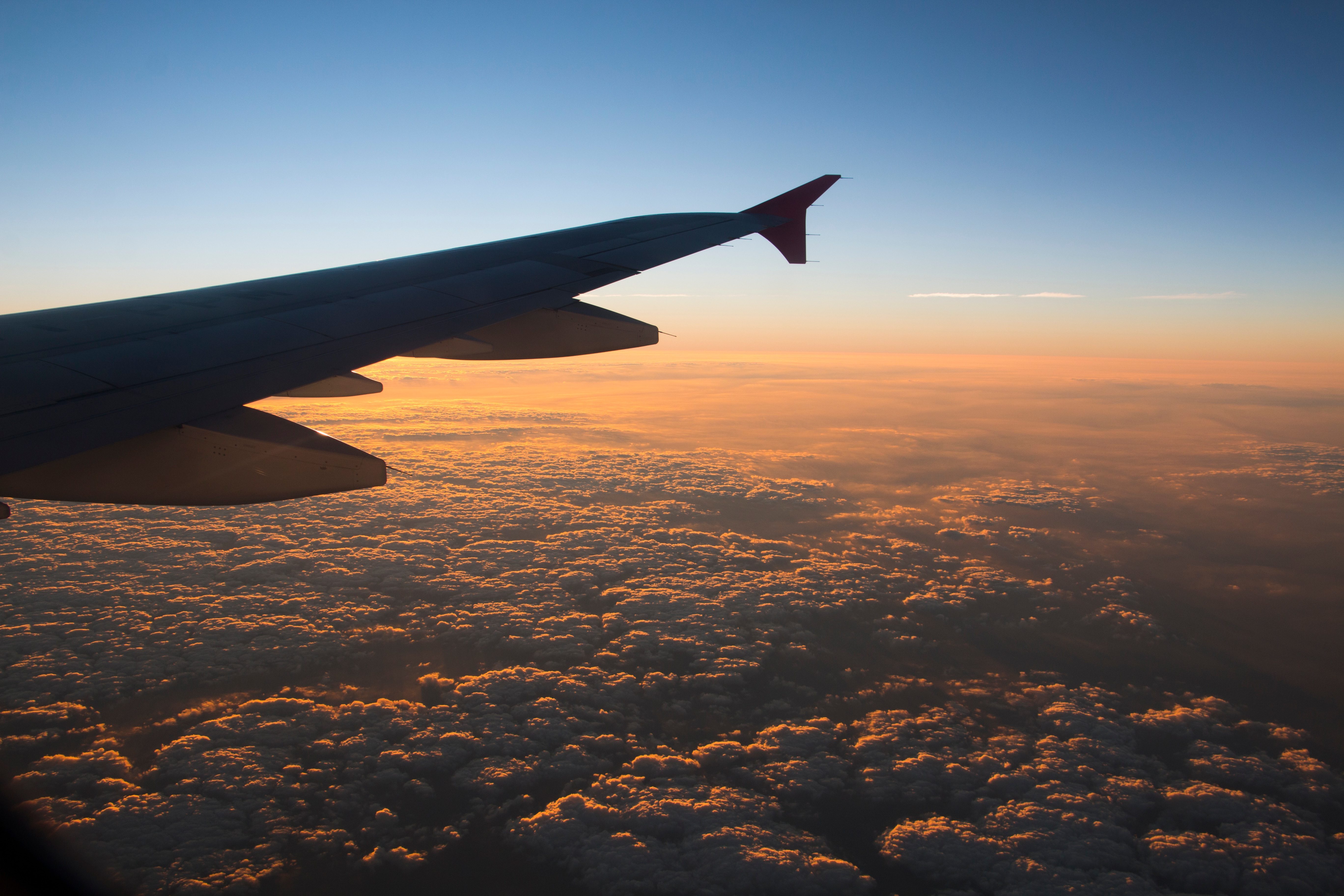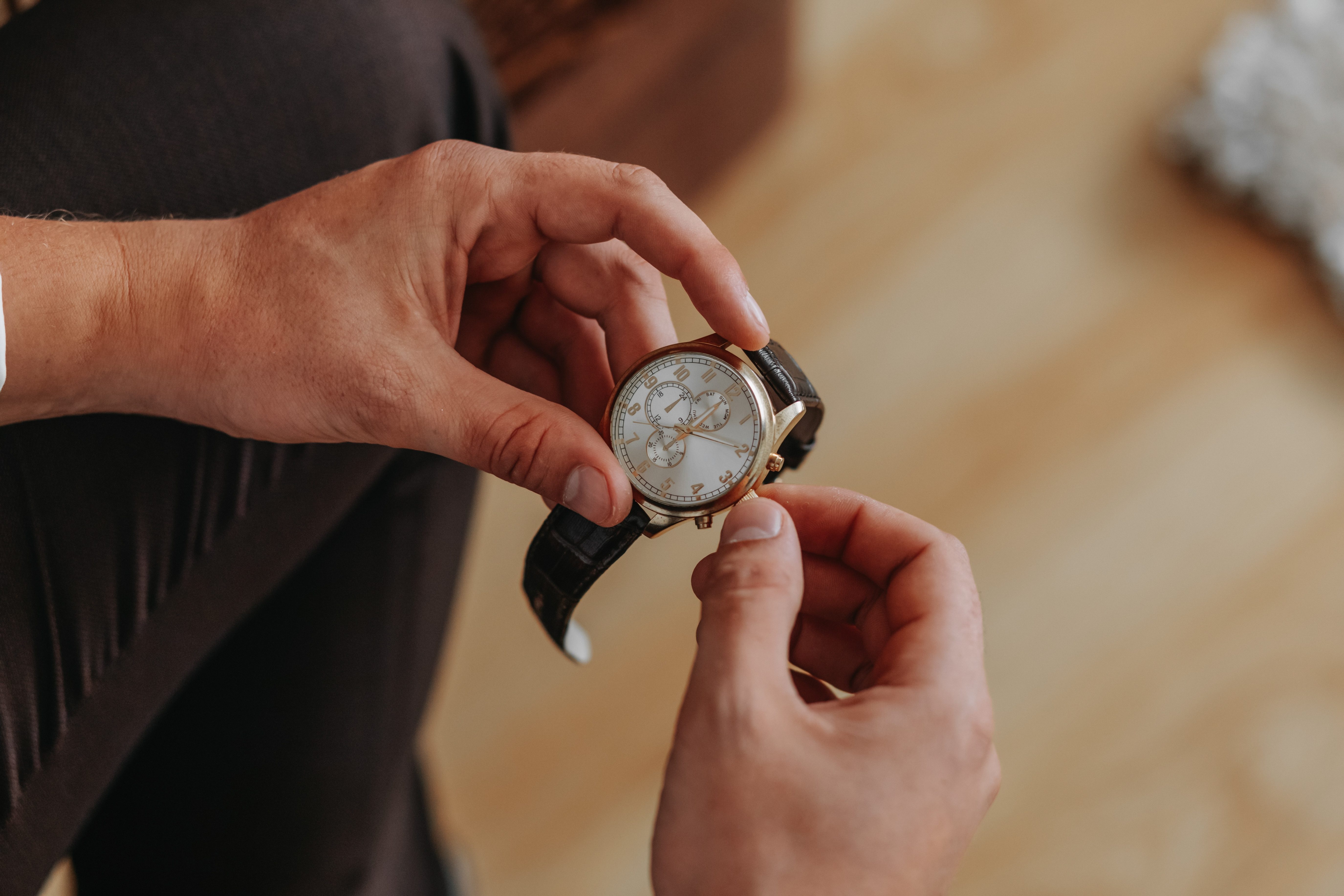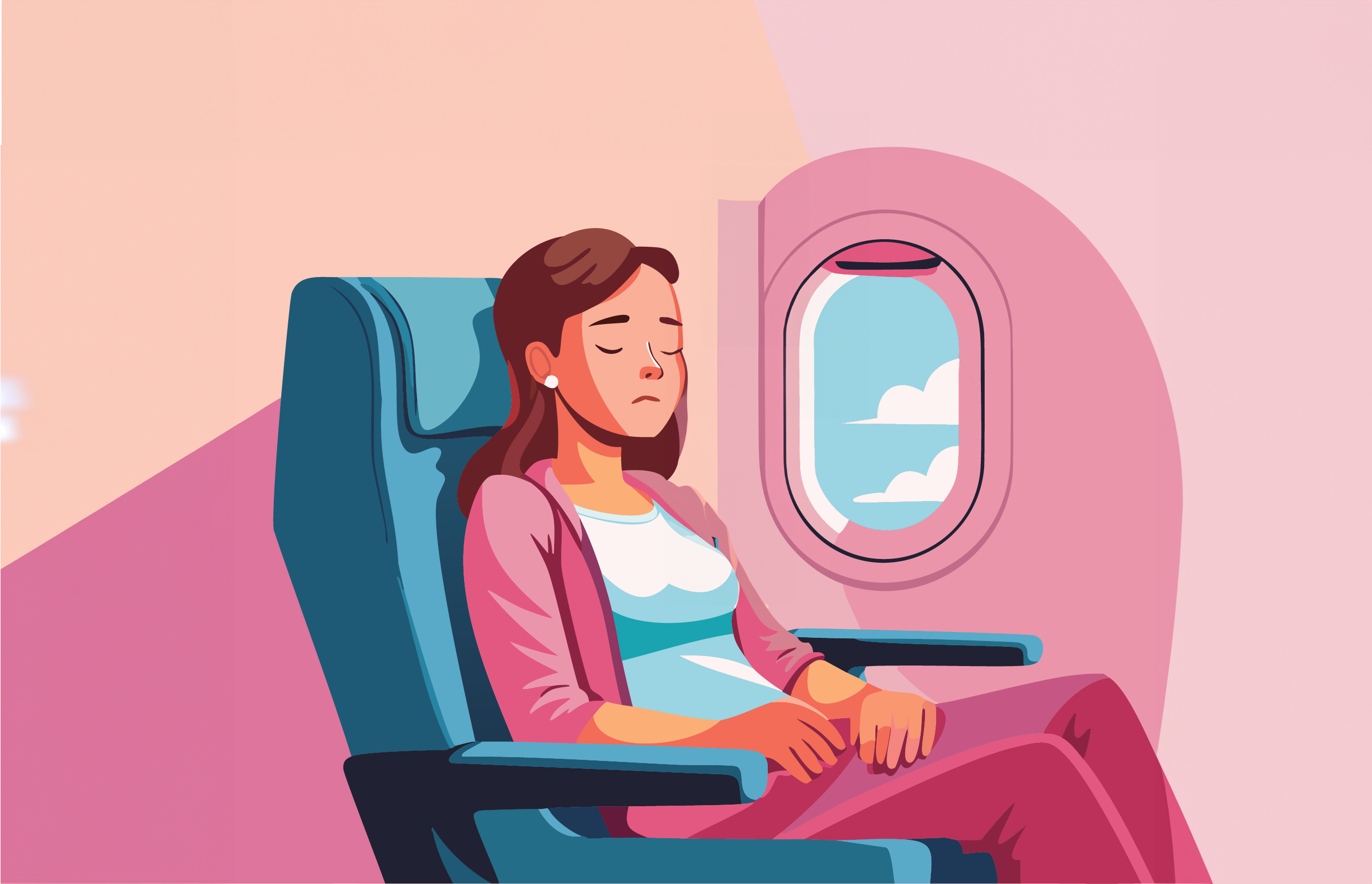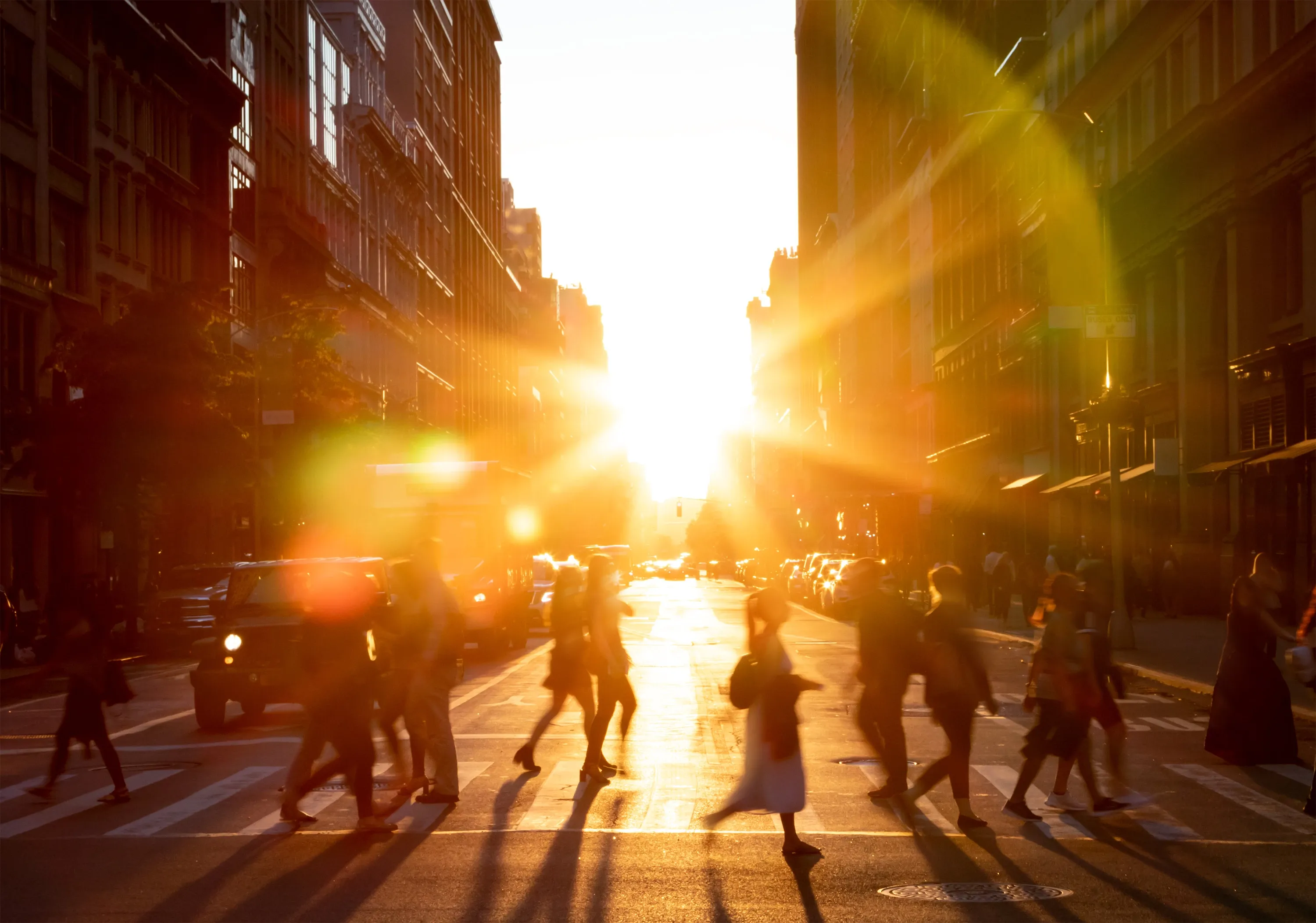Jet lag: How to adjust sleep after travelling
Insomnia, nausea, brain fog: nobody likes the feeling of being jet lagged. Is there anything you can do to swiftly realign your internal clock and minimise its effects Get one step ahead by coming up with a plan to combat jet lag before you set off on your trip.
What is jet lag?
Jet lag is caused by a disruption to your sleep pattern when you travel through multiple time zones (three or more zones, to be precise). Your body’s circadian rhythm, or internal clock, is a cycle that develops based on light and dark; it regulates sleep and is important for our bodies’ essential functions. If the circadian rhythm is thrown off, like when we move between time zones, our physical and mental health can be affected.
Jet lag symptoms include sleep problems (like poor sleep quality and difficulty going to sleep and waking up); tiredness and difficulty staying alert throughout the day; problems with concentration and memory; dizziness; gastro-intestinal upset, including indigestion, constipation and nausea; anxiety; and changes in appetite.
Jet lag tends to be worse when travelling from west to east (i.e. when we are ‘losing’ hours rather than ‘gaining’ them) and can last anywhere from a few days to a few weeks. There is no cure for jet lag and it cannot be avoided if you are changing your sleeping pattern significantly and quickly, but there are ways to ease the impact.

How to avoid jet lag
If you are taking a short trip to a place that is only an hour or two different to your usual time zone, consider staying on your usual time. That is, eat your meals at the times you usually would and go to bed and wake up at the same times you would at home. Remember that light is important for setting the circadian rhythm, so try to avoid light when it would be dark in your home time zone.
If you are staying in the new time zone for a long period, the key is to throw yourself in and adjust to the new time zone as quickly as possible. Set your clocks to the new time zone when you leave your home and sleep during the journey at times when it would be night at your destination. Some people choose to adjust their sleep pattern by a couple of hours in preparation before travelling to their destination to reduce the impact of jet lag.

You could also try a jet lag calculator to make the process simpler. These tools use algorithms to generate a plan designed to help your body clock get back into sync based on the details you enter, like where you’re flying to and from, what time you’re travelling and when you usually sleep.
Finally, do everything you can to make sleep more likely on the plane – use ear plugs and an eye mask if you would find them helpful and take a comfortable pillow and blanket with you. Drink plenty of water during your journey but avoid caffeine and alcohol, both of which could make jet lag worse, and eat small, light meals to prevent stomach problems.
How to deal with jet lag
There are no medications to treat jet lag – the body clock simply needs time to adjust. Be gentle on yourself and listen to your body if you are feeling the effects of jet lag. Give yourself time to adjust and don’t commit to lots of activities on the first day or two in your destination.
Don’t sleep during the day and set alarms to make sure you don’t oversleep in the mornings. If you do feel the need to take naps, keep them short (under 30 minutes) and don’t nap too close to bed time; try to nap at least eight hours before your planned sleep.

In the mornings, get up and expose yourself to natural light as soon as you can – open the curtains, look out of a window or, better still, take a stroll outside. This will help you feel more alert and will help your body clock to reset.
Try not to rely on caffeine, but if you need a boost before 4pm, a caffeinated drink could give you a short burst of energy. Be sure to stay away from caffeine in the evenings, since this could exacerbate your difficulty sleeping. Stay away from alcohol, too; alcoholic drinks have a negative impact on sleep quality and so are likely to delay your recovery from jet lag.
If you have a bedtime routine at home, do your best to follow it while you are away. If, for example, you take a hot bath before getting into bed, try to replicate this experience during your trip. Make sure the bedroom temperature is comfortable and move your phone away from the bed so you don’t check in when you wake up in the night (this can be tempting, if only to check the time, but it makes it harder to get back to sleep).
Should you take sleep aids?
If you take regular long flights and know you suffer badly from insomnia with jet lag, a doctor might prescribe sleeping pills. These should be used with caution, since they are addictive – take them sparingly as a temporary measure.
Another option is melatonin supplements. Melatonin is a substance produced by the body that helps to regulate sleep. Some studies have suggested that taking melatonin supplements can help to reduce the effects of jet lag when travelling over multiple time zones. Note, though, that they are sleep aids, not cures for jet lag – they don’t realign your circadian rhythm. These supplements are available to buy over the counter without a prescription. As with any supplement, they can cause side effects – read the information carefully before taking melatonin supplements.
Beauty sleep is important
Unfortunately, there is no cure for jet lag and the effects can’t be avoided if you are travelling through multiple time zones. There are, however, ways you can prepare to minimise its effects – for example, by shifting your activities to suit the new time zone as soon as possible, exposing yourself to daylight at the right times and avoiding caffeine and alcohol.
If you suffer badly from jet lag, it might be worth consulting your doctor; they might prescribe sleeping pills to help you adjust to new time zones. Though there isn’t a huge body of evidence in support of their effectiveness, some studies have suggested that melatonin supplements could also help regulate sleep and so reduce the symptoms of jet lag.
Sign up for the newsletter
By clicking on “Subscribe now” I will subscribe to the Conscious Explorer newsletter with all the information about mindful travel. Information on the success measurement included in the consent, the use of the shipping service provider MailChimp, logging of the registration and your rights of revocation can be found in our privacy policy.







